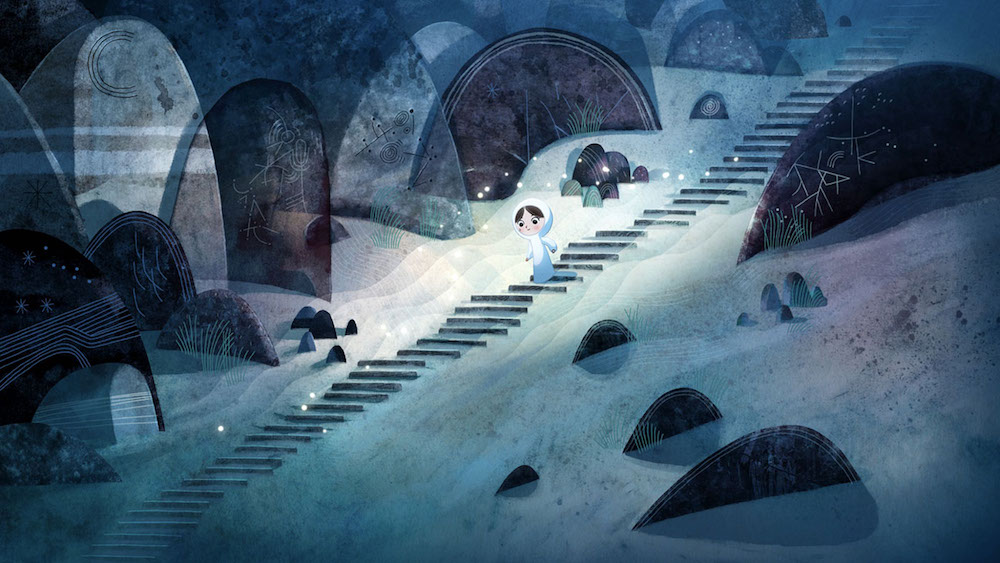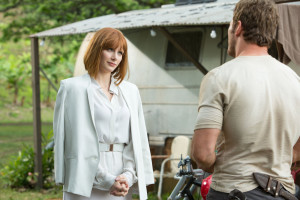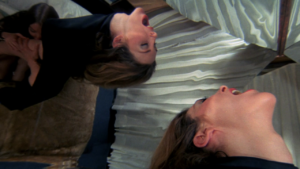
I rarely watch animated films, and there’s a few reasons for that. One, I don’t generally enjoy Pixar, and the Pixar-indebted school of modern mainstream animation is a plague across the land, seemingly impossible to escape from in the blighted halls of American theaters. When everyone’s copying the king, not enjoying Pixar’s trite emotional maelstroms means you’re hard pressed for something else. Second, and probably more important, children make me deeply uncomfortable, and many animated films, being directed at children and families, tend to feature children. It’s not just children that make me uncomfortable, it’s childhood in general. The tiny people, the movies about them, my own childhood- I’d prefer not to think about it if at all possible. Genre movies, avant-garde experiments, documentaries about sad people doing sad things — these are my pictures. I’ll watch people get disemboweled all day, but the wide-eyed innocence of tiny tykes is too much for my constitution to take. I was very close to simply not watching Song of the Sea at all, truth be told.
But then I saw those pictures of the animation. There was something I could sink my teeth into. Even if it ended up grating and childish (in the bad way), it would clearly be a beauty to look at, and being a stylistic devotee I knew I owed it at least a viewing. Also, I had heard nothing but praise for Tomm Moore’s previous effort The Secret of Kells, and nothing but shock at Song of the Sea (and Princess Kaguya) being snubbed during the Oscars, losing to Big Hero 6, a movie with the proud distinction of being even more of an upset than Brave, the movie most famous for being disappointing to Pixar’s ravenous critic and layman cult. When I saw it was streaming on Amazon, I was in a generous film watching mood (the kind where I don’t just watch straight to DVD horror films for 17 hours and then go to sleep) and gave it a whirl, more than a bit worried that these awful things called children would be the protagonists I’m stuck with for an hour and a half. Unsurprisingly, they were. The shocker is that I absolutely loved them.
Song of the Sea tells a story of Saoirse and Ben, two siblings living in Ireland (and one of them speechless and part selkie); Ben, the older brother, harbors resentment at Saoirse for what he thinks is her responsibility in their mother’s disappearance the night she was born, and Saoirse is inquisitive but easily hurt by her brother’s anger. They are trying to make their way home from their grandmother’s house in the city to their father Conor’s lighthouse to retrieve Saoirse’s selkie coat, lest she fade away and die. Along the way, they’re helped and hindered by all manner of magical beings, along with their trusty (and ridiculously adorable) dog Cú, and, as might be expected, there are trials and tribulations on the way. In its bare bones description, I realize that sounds like approximately 80% of the children’s movies that exist (the other 20% being, I assume, nothing but sequels to Clifford, the film starring Martin Short as a child who is, and I still find this hard to believe, not a big red dog). But the basic menu and faded lunch special pictures of every strip mall Chinese food place are the same too — what matters is the particulars, and what Moore does is give life to not only the world, which, to be clear, is maybe the most gorgeously animated world I have ever seen in a film, but to the characters.
Ben and Saoirse are not just cut outs of children, mewling and puking in the audience’s arms — they are full realized, empathetic, and interesting people, with their own motivations, desires, and reactions to the world around them. In contrast to so many films — even the ones with kids as their target audience — that posit children as catch-phrase delivery machines, precocious like a petulant computer, innocent, and emotionally deep as a kiddie pool, Song of the Sea sees its children the way Spike Jonze saw childhood in Where the Wild Things Are –– messy, confused, caring but short-sighted, and most of all alive, not boxed up into an easy definition but spilling over on all sides. I was deeply involved in their relationship to each other, the way Ben’s grief over his mother bled into a resentment of Saoirse that never curdles into a lack of love, the way Saoirse’s wordless expressions are bold and confident while still desperate for approval and for the love it can be hard to see in her brother’s eyes. They are real siblings, with all of the complications that entails, and the film’s bravery is in never simplifying or softening that for its audience.
But it’s not just the children that come to life on screen; every adult we meet (supernatural or not) is a totally realized mess of emotions and personal histories, from Conor’s despondent depression that fights with his deep caring for his children to Conor’s mother, the children’s grandmother, a stuffy old lady who is strident and unfun while still clearly caring deeply about her grandchildren’s wellbeing. In one of the film’s most stunning and tear-jerking characterizations, the owl witch Macha reveals that her plot — previously shaded as purely evil — is motivated by an incredibly caring desire, the desire to see no one hurt. In a tone that reminded me of Studio Ghibli’s affecting and legendary work, there are no real villains, just beings with different outlooks, often fearful and lost in their own ways. Macha is turning all the magical beings into stone, sure, but she’s doing it out of the pain she felt seeing her son’s heart broken. If no one can feel anything, she argues, no one will suffer, and all she wants to do is stop everyone from having to experience the hurt that comes part and parcel with a life.
That’s heavy shit for any film. To see it in this form feels near-revelatory, the rare family film that treats children with respect and deftly handles serious issues while never overwhelming the proceedings with sadness. The light touch of these moments is exemplary and powerful, adding weight to the story and the emotions behind it without it becoming maudlin, sappy, or reading as false like too many of the worst Disney film conflicts. It fits in with the subtle beauty of the animation and the wandering grace of the story. It fills out a film that’s simple in its plot but complex in its emotions, and it gives life to what could otherwise be a bit too sterile or clean. It’s not just the best animated film in years, it’s one of the best films I’ve seen in general all year, a touching, yearning tale of people learning how to love each other and live with their loss, never forgetting their grief but not being consumed by it either. Strangely enough, it reminded me in that way a bit of last year’s The Babadook, another remarkable film about a family coping with the problems of living that doesn’t posit easy answers. Different films, to be sure, but both coping with and providing answers to incredibly difficult and painful issues, even when the answers themselves can be painful too. Song of the Sea is brave, magical filmmaking, and you should make every point of seeking it out.
—
Song of the Sea is available on DVD and Blu-Ray and is currently streaming on Amazon Prime.
Directed by Tomm Moore; written by Will Collins (as William Collins) and Tomm Moore; starring David Rawle, Brendan Gleeson, Lisa Hannigan, Fionnula Flanagan, and Lucy O’Connell; 93 minutes.



 Derek
Derek
 Isabelle
Isabelle